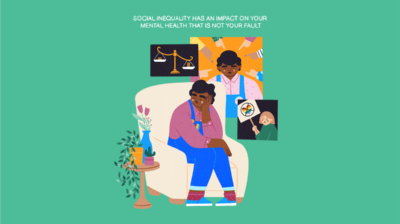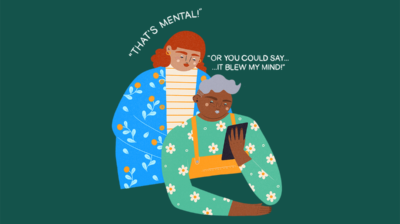How to support a friend recovering from an eating disorder
There are a few things you can do to help a friend in recovery

Knowing how to help a friend with an eating disorder can be difficult, especially if you worry about saying or doing the wrong thing. Some people may even avoid their friend because they’re not sure how they can help. However, this is a time when they need your support, so here are some things you can do to help them feel more comfortable and relaxed while they are coping with their illness.
If your friend has an undiagnosed eating disorder, it’s important that you encourage them to get help. You are not in a position to support someone who hasn’t had a proper diagnosis and who isn’t receiving proper treatment, because they need that support from a qualified professional. Eating disorders are highly complex psychological illnesses, and their management requires input from a range of highly trained health professionals.
What is an eating disorder?
An eating disorder is a health condition that causes a serious and potentially life-threatening change in your normal eating habits. Anyone can develop an eating disorder, and often it is a sign of underlying worries or stress that have caused a person to develop a negative relationship with food. Learn more about eating disorders here.
Examples of eating disorders include:
- Anorexia nervosa, which causes you to aim for and maintain a body weight that’s lower than what’s normal/healthy for your age, sex and height
- Bulimia – when someone eats a lot of food in a short space of time (binging), and then makes themselves sick or takes laxatives to get rid of the food they just ate
- Binge eating disorder – feeling a loss of control over how much you eat, and usually using eating as a way to deal with negative emotions
How can you support a friend with an eating disorder?
There are a few things you can do to help ease pressure and discomfort on someone with an eating disorder.
Link in with their family
This is an important first step to take when it comes to finding ways you can best support your friend. Speak to their family or those closest to them who are supporting their recovery process and who can give you guidance on the most suitable activities that you can do with your friend.
Education & self-care for yourself
It’s really important that you understand what is going on for your friend so that you can best support them. Reading up on the issues, finding out more about their eating disorder, and listening to talks online can be a great resource.
When a friend is going through difficulties, remember that it’s important to get support for yourself and mind yourself too. Make sure you have someone you can talk to that will understand and help you not to be overwhelmed. This support can be family, friends or professional help like a counsellor.
During meal times
If you live with someone with an eating disorder, plan to eat with them – arrange what you both will eat in advance, including portion sizes. Make sure the meal is balanced with the dietary requirements of everyone taken into account.
Once you have a plan, make sure you have the ingredients you need to follow through. Last minute changes can cause the person to panic, and this could limit how much they will eat.
Shopping together might give you a chance to introduce new foods that they’re willing to eat in the case of restrictive food disorders, and discourage them from buying food to binge on.
Keep conversations neutral
Always keep conversations neutral, and avoid discussions centred around food and weight. However, if they want to talk about what they’re going through, be ready to listen. It is best to let them bring up the subject themselves when they feel comfortable about discussing it with you.

Focus on other things after eating
After you finish a meal, suggest doing an activity together (such as watching a film) to try and take their mind off food and to help them to avoid urges, such as purging or exercising excessively.
Offer practical support
Simple tasks can feel incredibly difficult when someone is struggling with a mental illness. Offering support such as going to appointments with them and helping them out with day-to-day tasks can not only help to make sure they get things done, they will also feel less isolated.
Stay friends with them
Make sure to involve your friend in all the same things you would have done before they got sick. Although it may be hard for you, it is even harder for them. Eating disorders can be very isolating, and they might be worried that all of their friends will pull away from them. This can also help them to get back to normality if they are undergoing treatment.
Try and find activities that don’t centre around food
Many social activities centre around food, such as going for coffee, lunch, meals, drinks etc. Try to find other activities which don’t centre around food when you’re meeting up with a friend with an eating disorder. You can go to see a show in the theatre, go to the cinema, go for a short walk around a park – anything where it is less likely that food is the main focus.
Encourage them to use supports
It can be helpful for someone going through an eating disorder to seek external support, such as going for counselling or joining a support group with people who will understand them and what they’re going through. The important piece here is not to force the person into getting help, but simply encourage them. Getting the right support is important because there may be issues that they need to talk about that will require someone who is trained and is impartial in the relationship.
Talk to someone if you’re worried
If you’re worried about your friend’s recovery, or if you find they are trying to persuade you to let them do something that could be harmful to their recovery process, such as skipping a meal or binging, talk to someone about it. Reach out to a family member or someone you know is close to their recovery process and let them know your concerns, and encourage your friend to get in touch with their psychologist or doctor. You could also reach out to a support organisation for advice.
Supports for people with eating disorders
You can find more information on eating disorders and on how to support a friend with an eating disorder through:
- Bodywhys are the Eating Disorder Association of Ireland providing a range of support services and information
- Beat Eating Disorders are a UK based organisation who also provide a helpful information booklet
- Eating disorders section of the SpunOut website






